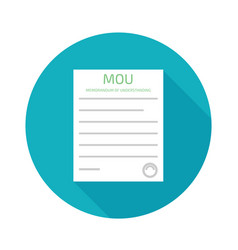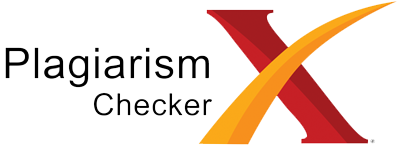Pengembangan Mobile Seamless Learning Platform untuk Meningkatkan Pengetahuan Kader PKK
Abstract
The number of Empowerment and Family Welfare Cadres which are called PKK Cadres, is very large and spread all over Indonesia, making the state budget unable to reach all of them to obtain increased capacity of Human Resources (HR), for this reason a mobile seamless learning platform is being developed to increase the knowledge of PKK Cadres. This research and development aim to produce a platform to increase the knowledge of PKK Cadres and test the level of product feasibility, using the Lee & Owens model. In addition, to determine whether there is an increase in the knowledge of PKK Cadres, a paired/dependent sample t-test was performed on the pretest and posttest value data. The product developed is a mobile seamless learning platform and is equipped with content in the form of reading materials, PowerPoint presentation materials, videos and learning evaluation tests. The platform validation results produce very good criteria based on material aspects as well as media and learning design aspects. The response of PKK cadres and teachers obtained very good criteria for the feasibility of the platform as a learning medium. Based on the results of statistical tests, it was concluded that there was an increase in the knowledge of PKK Cadres after using the mobile seamless learning platform.
Abstrak
Jumlah Kader PKK yang sangat besar dan tersebar di seluruh penjuru Indonesia, membuat anggaran negara belum mampu menjangkau seluruhnya untuk memperoleh peningkatan kapasitas Sumber Daya Manusia (SDM), untuk itu maka dilakukan pengembangan mobile seamless learning platform untuk peningkatan pengetahuan Kader PKK. Penelitian dan pengembangan ini bertujuan untuk menghasilkan platform untuk meningkatkan pengetahuan Kader PKK dan menguji tingkat kelayakan produk, dengan menggunakan model multimedia based instructional design Lee & Owens. Produk yang dikembangkan berupa aplikasi mobile seamless learning platform dan dilengkapi dengan konten berupa bahan bacaan, bahan tayang powerpoint, video dan tes evaluasi pembelajaran. Hasil validasi platform menghasilkan skor rata – rata sebesar 88,05% dengan kriteria sangat baik, aspek materi 94,67% serta aspek media dan desain pembelajaran 84,33 %. Respon Kader PKK mendapat skor 89,74% dan respon pengajar mendapatkan skor 92,31% kesimpulannya platform memiliki kriteria yang sangat baik untuk kelayakan platform sebagai media pembelajaran. Selain itu untuk mengetahui adanya peningkatan pengetahuan Kader PKK dilakukan uji statistik paired/dependent sample t-test sehingga diperoleh kesimpulan terdapat peningkatan pengetahuan Kader PKK setelah menggunakan mobile seamless learning platform.
Keywords
Full Text:
PDFReferences
Amhag, L. (2017). Mobile-Assisted Seamless Learning Activities in Higher Distance Education. 6(3), 70–81. https://doi.org/10.5430/ijhe.v6n3p70
Andriani, T. (2016). Sistem pembelajaran berbasis teknologi informasi dan komunikasi. Sosial Budaya, 12(1), 117–126.
Arif, Z. (1996). Andragogi. Angkasa.
Arikunto, S. (2011). Prosedur penelitian : suatu pendekatan praktik. Rineka Cipta.
Chan, T.-W., Roschelle, J., Hsi, S., Kinshuk, Sharples, M., Brown, T., Patton, C., Cherniavsky, J., PEA, R. O. Y., & Norris, C. (2006). One-to-one technology-enhanced learning: An opportunity for global research collaboration. Research and Practice in Technology Enhanced Learning, 1(01), 3–29.
Degeng, I. N. S. (2013). Ilmu Pembelajaran: Klasifikasi Variabel untuk Pengembangan Teori dan Penelitian. Kalam Hidup.
Dewantara, H. (2004). Karya Ki Hadjar Dewantara: Pendidikan. Majelis Luhur Persatuan Taman Siswa.
Hamid, A., Setyosari, P., Saida, U., & Kuswandi, D. (2019). The implementation of mobile seamless learning strategy in mastering students’ concepts for elementary school. Journal for the Education of Gifted Young Scientists, 7(4), 967–982.
Ilman, A., Sulthoni, & Wedi, A. (2022). Pengembangan Mobile Learning Berbasis Android Materi Recount Text Kelas X Bahasa. JKTP: Jurnal Kajian Teknologi Pendidikan, 5(1), 32–41. https://doi.org/10.17977/um038v5i12022p032
Lee, W. W., & Owens, D. L. (2004). Multimedia-based instructional design: computer-based training, web-based training, distance broadcast training, performance-based solutions. John Wiley & Sons.
Looi, C., Seow, P., Zhang, B., So, H., Chen, W., & Wong, L. (2010). Leveraging mobile technology for sustainable seamless learning: a research agenda. British Journal of Educational Technology, 41(2), 154–169.
Malandrino, D., Manno, I., Palmieri, G., Scarano, V., Tateo, L., Casola, D., Ferrante, I., & Foresta, F. (2014). A tailorable infrastructure to enhance mobile seamless learning. IEEE Transactions on Learning Technologies, 8(1), 18–30.
Narayan, V., Herrington, J., & Cochrane, T. (2019). Design principles for heutagogical learning: Implementing student-determined learning with mobile and social media tools. Australasian Journal of Educational Technology, 35(3).
Presiden. (2017). Peraturan Presiden Nomor 99 Tahun 2017 tentang Gerakan Pemberdayaan dan Kesejahteraan Keluarga. 1–7.
Purba, R. A., Tamrin, A. F., Bachtiar, E., Makbul, R., Rofiki, I., Metanfanuan, T., Masrul, M., Simarmata, J., Juliana, J., & Irawan, E. (2020). Teknologi Pendidikan. Yayasan Kita Menulis.
Rahardjo, T., Degeng, N., & Soepriyanto, Y. (2019). Pengembangan Multimedia Interaktif Mobile Learning Berbasis Anrdroid Aksara Jawa Kelas X Smk Negeri 5 Malang. JKTP: Jurnal Kajian Teknologi Pendidikan, 2(3), 195–202. https://doi.org/10.17977/um038v2i32019p195
Rifai, A., Sulton, S., & Sulthoni, S. (2020). Pengembangan Media Mobile Learning Sebagai Pendukung Sumber Belajar Biologi Siswa SMA. JKTP: Jurnal Kajian Teknologi Pendidikan, 3(1), 10–17. https://doi.org/10.17977/um038v3i12019p010
Rumbaugh, J., Jacobson, I., & Booch, G. (201 C.E.). The Unified Modeling Language Reference Manual. In Journal of Chemical Information and Modeling (Vol. 53, Issue 9).
Safiah, I., Degeng, I. N. S., Setyosari, P., & Ulfa, S. (2020). Design and development of seamless learning to improving learning outcome of Islamic economic course: a case study in Indonesia. Journal of E-Learning and Knowledge Society, 16(3), 60–67.
Sharples, M. (2013). Mobile learning: research, practice and challenges. Distance Education in China, 3(5), 5–11.
Sharples, M. (2015). Seamless learning despite context. In Seamless learning in the age of mobile connectivity (pp. 41–55). Springer.
Sugiyono. (2012). Metode Penelitian Pendidikan. Alfabeta.
Ulfa, S. (2017). “Mobile Seamless Learning” Sebagai Model Pembelajaran Masa Depan. JINOTEP (Jurnal Inovasi Dan Teknologi Pembelajaran): Kajian Dan Riset Dalam Teknologi Pembelajaran, 1(1), 11–19.
Waard, I. De. (n.d.). Exploring Future Seamless Learning Research Strands for Massive Open Online Courses. 2006.
Wong, L.-H. (2013). Analysis of students’ after-school mobile-assisted artifact creation processes in a seamless language learning environment. Journal of Educational Technology & Society, 16(2), 198–211.
Wong, L.-H. (2015). A brief history of mobile seamless learning. In Seamless learning in the age of mobile connectivity (pp. 3–40). Springer.
Wong, L.-H., & Looi, C.-K. (2011). What seams do we remove in mobile-assisted seamless learning? A critical review of the literature. Computers & Education, 57(4), 2364–2381.
Wong, L. (2016). A Brief History of Mobile Seamless Learning (Issue September 2015). https://doi.org/10.1007/978-981-287-113-8
Yetik, E., & Bozkurt, A. (2020). Seamless Learning Design Criteria in the Context of Open and Distance Learning. January. https://doi.org/10.4018/978-1-5225-9779-7.ch006
DOI: http://dx.doi.org/10.17977/um038v6i22023p060
Refbacks
- There are currently no refbacks.
Copyright (c) 2023 Mia Ratna Juwita

This work is licensed under a Creative Commons Attribution-ShareAlike 4.0 International License.
JKTP: Jurnal Kajian Teknologi Pendidikan published by Department of Educational Technology, Faculty of Education, State University of Malang in Collaboration with Asosiasi Program Studi Teknologi Pendidikan Indonesia (APS TPI).
Publisher Address:
Lab. Teknologi Pendidikan, Gd.E2, Lt.1
Fakultas Ilmu Pendidikan Universitas Negeri Malang
Jl. Semarang 5, Kota Malang Email: jktp.fip@um.ac.id
========================================================================================================
| INDEXED BY | TOOLS | PLAGIARISM CHECK | ARTICLE TEMPLATE |
|
|

JKTP: Jurnal Kajian Teknologi Pendidikan is licensed under a Creative Commons Attribution-ShareAlike 4.0 International License.
JKTP Statistics (Since July 13th, 2020)





.png)












